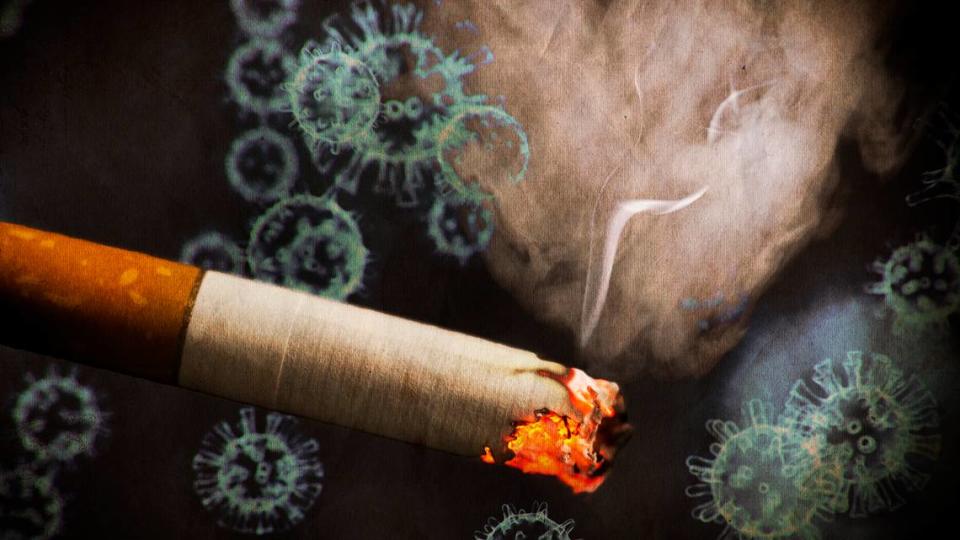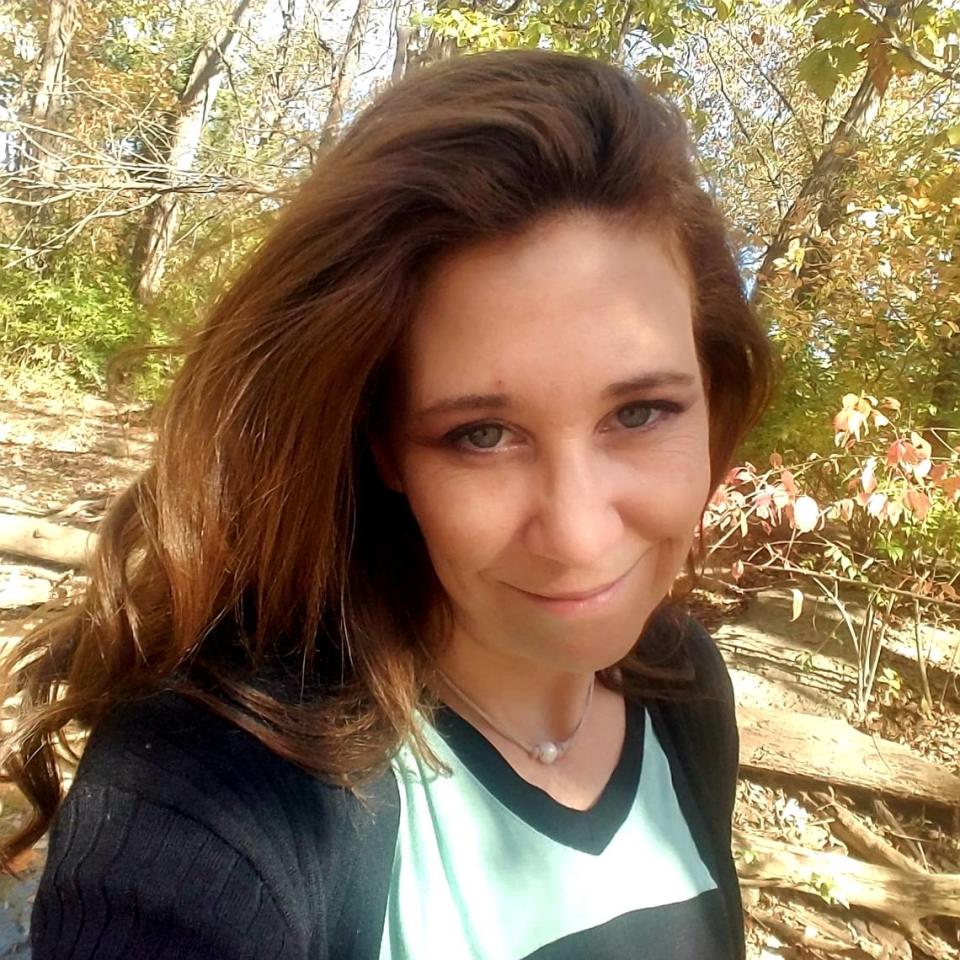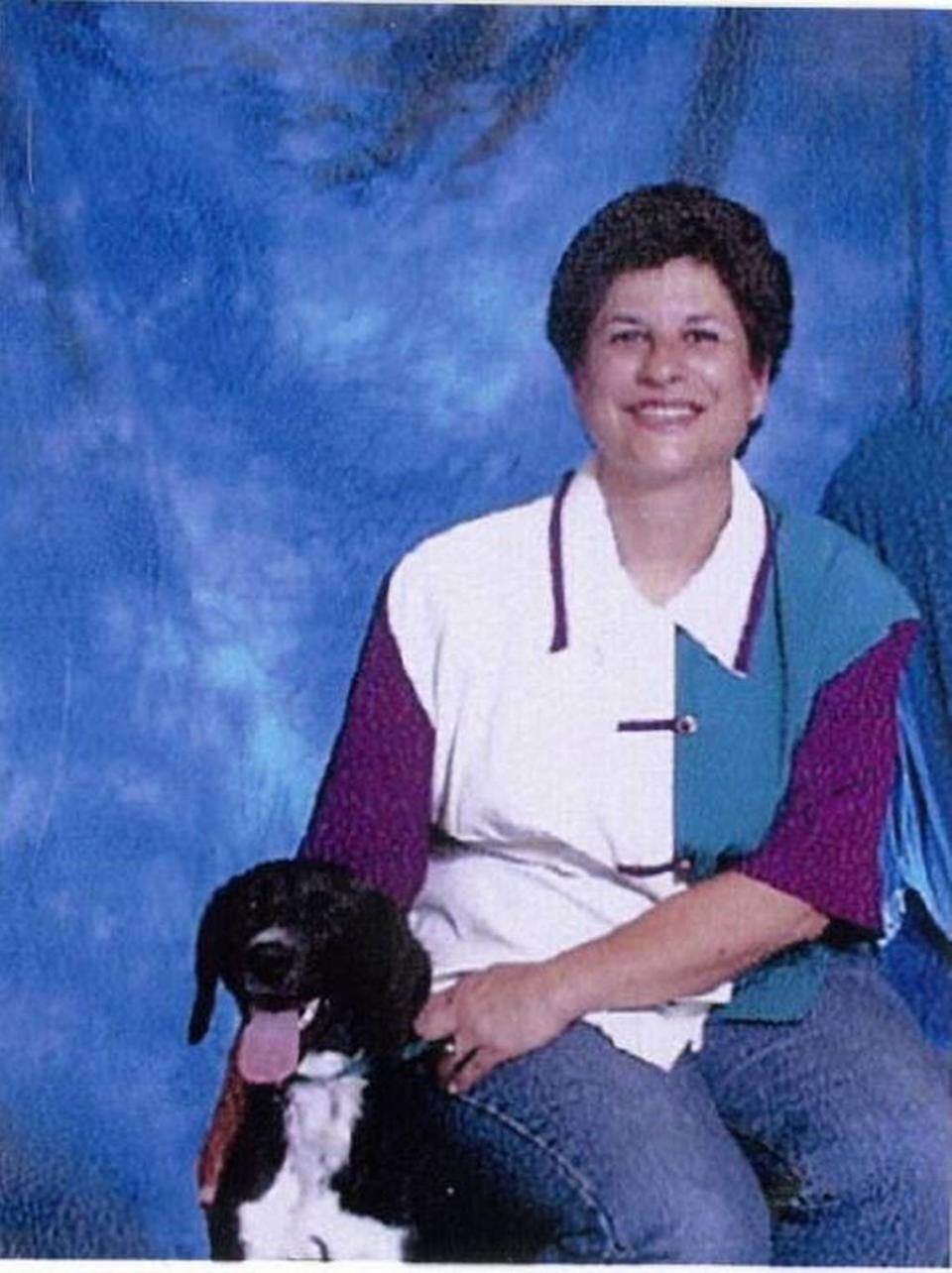You’d think COVID gives smokers a reason to quit. In KS and MO, many did the opposite
Valerie Howard thought smokers in Missouri had a big incentive to quit this past year: the fear of dying from COVID-19.
“But I think in some cases the converse happened,” said Howard, Tobacco Control Program manager for the Missouri Department of Health and Senior Services.
“People were really struggling, there was a lot of stress, there was a lot of fear, and we turn to all kinds of sometimes unhealthy behaviors to help us handle our stress.
“There are folks that used it as an opportunity for sure but we also saw an increase as a result of just the stress from the pandemic itself.”
In Missouri, health officials tried to get ahead of the pandemic with a statewide stop smoking campaign on social media that included this message: This is not the best time to start smoking again.
It focused on the risks of relapse, encouraged smokers of all ilk to think about how their health affects loved ones, even pets, and directed them to 1-800-QUIT-NOW, free, phone-based tobacco cessation services available to residents of every state.
But the calls didn’t come as health officials across the country hoped.
Calls to tobacco “quitlines” in the United States dropped 27% from 2019 to the first quarter of 2020, then sank 39% from April to June, the North American Quitline Consortium has reported.
Calls to 1-800-QUIT-NOW (800-784-8669) are directed to individual states, and health department officials in both Missouri and Kansas report their quitline calls dropped off last year. It’s too early to see what those numbers will be like for 2021.
Anything that suggests people are smoking more or have stopped trying to quit, is particularly bad news for Missouri, which has some of the highest lung cancer rates in the country and the 10th highest adult smoking rate in the United States.
In Missouri, 19.4% of adults smoke, according to the latest estimate from the state health department.
In Kansas, 17.4% smoke, according to state health department estimates, ranking 31st, according to the Centers for Disease Control and Prevention.
Knowing that smokers gave up trying to quit or relapsed, and new people took up smoking during the pandemic renews the urgency of tobacco cessation efforts in both states.
Smoking was associated with more severe illness and death in people hospitalized for COVID-19, the World Health Organization found. Smoking damages the lungs and the immune system, making smokers more vulnerable to respiratory infections.
One British study this year suggested that current smokers who got COVID-19 were twice as likely to wind up in the hospital as non-smokers.
“So what are we going to see going forward? I think it’s kind of hard to say yet,” said Howard. “I haven’t seen any data or anything that’s been mentioned about where we go from here other than continuing to educate folks on that connection between lung health and tobacco use.”

1-800-QUIT-NOW
Studies have shown that tobacco users who use quitline services have 60% higher odds of breaking the habit compared to smokers who try to quit with minimal or no counseling or self-help.
And those who use both medication and quitline services have 30% greater chance of quitting compared to those who use only medications.
“What we do know is that evidence-based behavioral counseling, like on the quitline, combined with recognized nicotine therapy or cessation medication is the best way, the most successful way, for people to quit tobacco use,” said Lisa Frey Blume, training and outreach coordinator with the Kansas Department of Health and Environment’s Tobacco Use Prevention program.
“So rah rah for the quitline. We want to promote it as much as we can and a lot of Kansans don’t know about it.”
Smokers can also visit ICOVIDQuit.org to see short videos of people who successfully quit smoking during the pandemic.
In both Kansas and Missouri, the quitline is free and available 24/7. Both states offer services designed for youth. And all smokers get a free “quit kit” of information.
Missouri residents can also go to quitnow.net/Missouri to register for various services. For instance, Missouri HealthNet participants are eligible to receive free nicotine gum or patches from a health care provider as a Medicaid benefit.
In Kansas, the hotline program is called KanQuit!, with information at ksquit.org.
Most Kansans who smoke — 6 out of 10 surveyed — say they want to quit tobacco or they’ve tried, Blume said.
“Unfortunately the concept among the general population is you quit using the cold turkey method, you quit with no help. And that is a perception that we really want to change,” said Blume.
Using e-cigarettes to quit smoking conventional cigarettes is not a recommended strategy. Health officials worry about people swapping one unhealthy habit for another.
But the method worked for Robyn Majors, who used electronic cigarettes to wean herself off conventional ones.
When Majors gave up smoking, she started vaping. Then she went back to conventional cigarettes. Then health problems convinced her to quit again and she went back to vaping.
She’d been smoking since she was a teenager growing up in a house full of smokers. “I was probably addicted before I ever smoked because of secondhand smoke. Back in the ’80s, it wasn’t a big deal,” said the 47-year-old DoorDash driver from Gladstone.
“I remember there being a layer of cigarette smoke in the house.”
Finally last summer, during the pandemic, she jumped off the merry-go-round. Like many Americans she was stressed out, “but I also felt like I need a win here. I need something to help elevate me in life,” she said.
“I just used it as motivation. And once I started to quit it made me feel so good that I had accomplished something, that I had been working for literally for several years.
“That really propelled me and gave me something to hold onto through this and feel like ‘look what I did during the hardest time we’ve ever been through.’”
In a few days she’ll celebrate being free of all cigarettes for one year.

KC trial needs volunteers
The Food and Drug Administration has approved seven medications shown to be effective for helping people quit smoking, according to the CDC. There are new ones coming, and Kansas City smokers can play a role in that.
Since 1986, the Center for Pharmaceutical Research in Kansas City has conducted more than 800 clinical trials, and some have been more personal than others for founder Dr. John E. Ervin.
“I feel very passionate about anything we can do to get people to help quit smoking,” said Ervin. “I lost a brother two years younger than me to cigarette smoking, and I have an older brother that’s had a heart attack who was a heavy smoker.
“This is primarily targeting people that need to get off those damn cigarettes, causing about 9 million premature deaths each year.”
The center is enrolling participants for the trial to test the safety and efficacy of cytisinicline, a plant-based alkaloid that’s been used as a smoking cessation therapy in Europe for two decades. The Kansas City site is one of 15 where the drug is in Phase 3 trials, the final round of study.
Cytisinicline interacts with nicotine receptors in the brain and has been shown to reduce withdrawal symptoms and that sensation of satisfaction smokers feel.
“There are other nicotine products, nicotine patches, that have been used, and this seems to be more effective than even the nicotine patches on helping people to not get that nicotine urge,” said Ervin.
But breaking the nicotine addition isn’t the only challenge for people wanting to quit. “There’s also a psychological addiction,” said Ervin. “You’ve probably known people that quit, successfully quit, and one day they pick up a cigarette and boom, they start right back in.”
In the 12-week trial, some participants will be given the drug, taken in pill form three times a day, while others will get a placebo and some will get both.
“The safety of it is not a concern for me for the fact that it’s been used for many years already in Europe,” said Ervin. “It kind of gives us a little bit of comfort level with using it.”
Participants must be at least 18 and in general good health, currently smoke an average of 10 cigarettes a day and have failed at least once before to stop smoking, among other requirements.
You can sign up and find out more on the center’s website, cprkc.com/clinical-trials/enrolling.
Ervin emphasized that participants must be committed to quitting. Compensation up to $1,925 is available.
“I hope we don’t have people in here who are getting in this trial mainly for the stipend, because then they don’t really have the desire to quit,” he said. “If you’re not motivated, you’re not going to quit. Period.”

Freedom from smoking
Lynette Schmidt had motivation.
She broke up with cigarettes after 40 years of smoking when she got a call from her insurance company before a total hip replacement. The insurer wouldn’t cover the operation because she smoked.
She said she never smoked more than half a pack a day — 10 cigarettes — which made her a heavy smoker in the eyes of her insurer. Smoking can increase a patient’s risk of post-surgery complications, “and I had to be smoke-free for two months before they would do the surgery,” said Schmidt, a 63-year-old professional pet sitter who lives in Prairie Village.
On Jan. 19, Schmidt put her last stash of cigarettes in a sink, ran water over them and threw them away. She hasn’t smoked since.
Schmidt enrolled in the Freedom From Smoking classes, created by the American Lung Association, at AdventHealth Shawnee Mission, which has offered two sessions of the $35 classes during the pandemic. Another is coming in August. The hospital system’s community classes and programs are listed at adventhealthkc.com/wellness.
Freedom from Smoking classes are offered at several locations around Kansas City. To find sessions go to lung.org/quit-smoking.
“When you see the impact of smoking, nothing impacts quality of life like not being able to breathe,” said Amanda Nunamaker, a respiratory therapist for 16 years who runs community wellness programs for AdventHealth.
She said that the average participant in the Freedom From Smoking classes began as teenage smokers and had been smoking 20 to 60 years.
The lung association’s program is designed to avoid intimidation. Participants take baby steps toward quitting — a couple of smoke-free hours here, a smoke-free day there. They keep journals, hear from former smokers and support one another along the way.
“So much of what we focus on is stress management and behavior modification. That’s a big piece of what we talk about,” Nunamaker said. “When they first join, we don’t ask them to make any changes to their behavior.
“We’re just going to be gauging how they’re doing, really teaching them how to analyze their behavior and notice patterns.”
How are they going to get through their morning coffee without a cigarette? How are they going to drive without a cigarette?
“I think that the class was really good because it was a full scope class,” said Schmidt. “It covered a lot of bases from why you smoke, to the chain of addiction, to quit-smoking medications that are available.
“It discusses good habits to replace smoking. It has stress and anxiety reducers and even how to avoid gaining weight when you are smoke-free.”
She learned to reward herself with trips to Hobby Lobby and working in puzzle books instead of a cigarette.
On “quit day,” class members ceremoniously throw their cigarettes away, talking about why they want to quit and saying their commitment out loud to give it heft. Schmidt threw hers out beforehand. “I wanted to get it over with,” she said.
For some smokers, quit day is as emotional as saying goodbye to a best friend, Nunamaker said.
Schmidt got her hip replaced on March 22 and is walking a mile a day now. A few of her classmates didn’t finish the program.
But that’s all right, said Nunamaker.
They are always welcome back.

